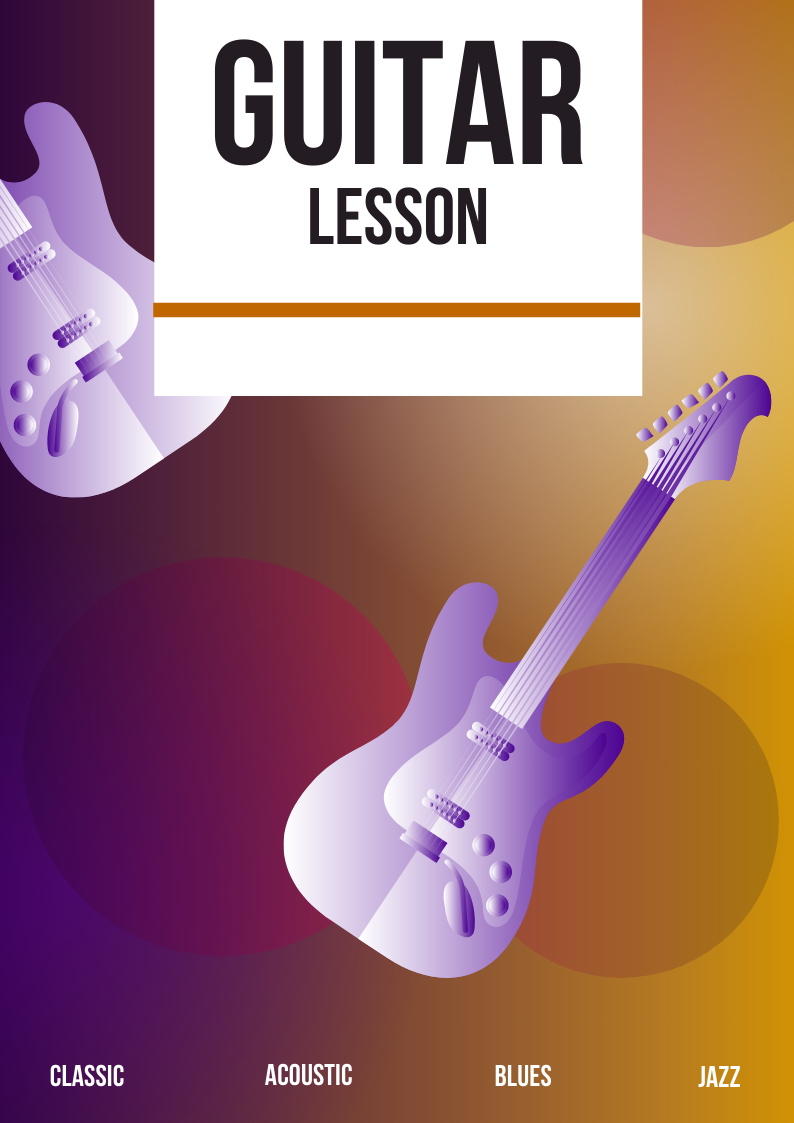GUITAR LESSON

Guitar lessons are an excellent way to learn how to play the guitar, whether you’re a beginner or looking to improve your skills.
Guitar lessons are designed to teach individuals how to play the guitar and develop their skills as guitarists. Whether you’re a complete beginner or already have some experience, guitar lessons can provide structured guidance, personalized instruction, and a supportive learning environment.
During guitar lessons, you’ll work closely with a guitar instructor who will assess your current skill level, musical goals, and learning style. Lessons can be conducted in various formats, including private one-on-one sessions, group lessons, or online lessons.
The content covered in guitar lessons typically includes the following elements:
Technique: Guitar lessons focus on teaching proper hand positioning, finger placement, and picking techniques. You’ll learn how to fret notes accurately, execute strumming patterns, and develop the necessary dexterity and coordination to play the guitar effectively.
Chords and Scales: Building a foundation in chords and scales is crucial for guitarists. Lessons will introduce you to basic chords, such as open chords and barre chords, as well as scales that are essential for soloing and improvisation. You’ll learn how to transition between chords smoothly and explore different scales and their applications.
Music Theory: Understanding music theory is beneficial for guitarists. Lessons will cover fundamental concepts such as reading music notation, understanding rhythm, learning about key signatures and scales, and exploring chord progressions. This knowledge enables you to understand the structure of songs, compose your own music, and communicate effectively with other musicians.
Repertoire: Learning songs is an integral part of guitar lessons. Your instructor will guide you through the process of learning and playing songs from various genres, such as rock, pop, blues, folk, or jazz. This helps you develop your musical ear, improve your sense of rhythm, and apply the techniques and concepts you’ve learned in a practical context.
Improvisation and Soloing: Once you have a solid foundation, guitar lessons may delve into improvisation and soloing techniques. You’ll learn how to create melodies, play guitar solos, and develop your improvisational skills. This allows you to express yourself creatively and develop your own unique style as a guitarist.
Throughout guitar lessons, your instructor will provide feedback, offer guidance on proper practice techniques, and help you set realistic goals to track your progress. They may also recommend additional resources, such as instructional materials, online tutorials, or music theory books, to support your learning outside of lessons.
Remember, consistent practice is crucial for improvement. Your instructor will provide you with practice exercises, assignments, and personalized feedback to help you develop your skills and achieve your musical goals. With dedication, patience, and the guidance of a skilled instructor, guitar lessons can be an enriching and rewarding experience that allows you to develop your musical abilities and enjoy the pleasure of playing the guitar.
